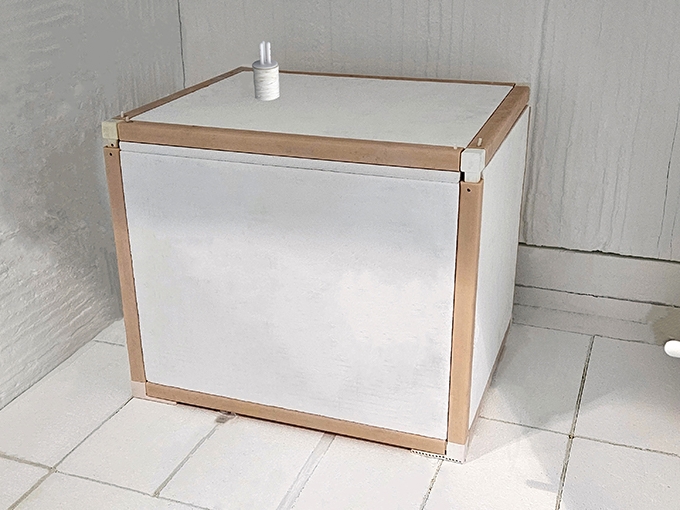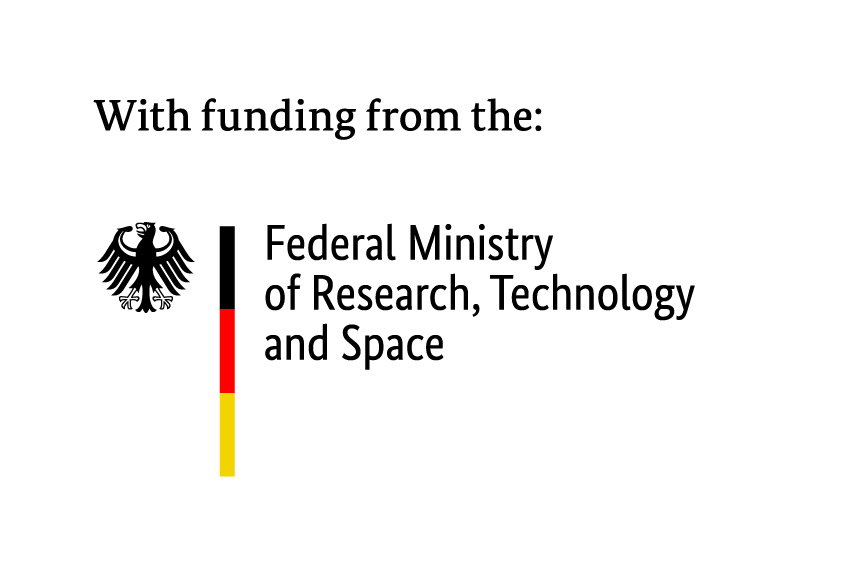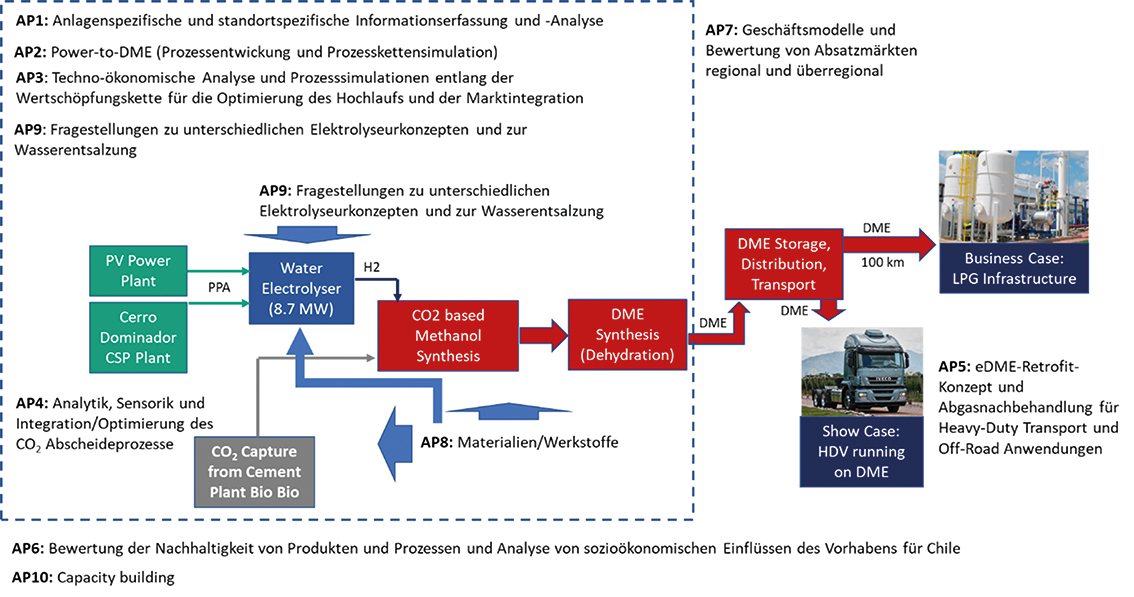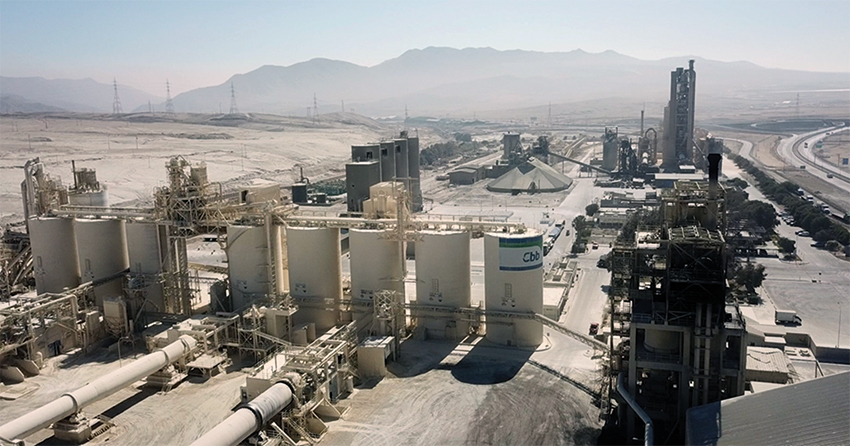Currently Funded Project
Motivation
In 2019, an energy partnership was established between Germany and Chile with the aim of supporting the national energy policy in favor of a climate-friendly, nationwide, secure and affordable energy supply in Germany and in Chile. The project Power-to-MEDME project is dedicated to the large-scale development of the proproduction of green methanol and dimethyl ether (DME) in Chile. In the spirit of the German-Chilean energy partnership, this project supports the diversification of energy imports and the development of trade relations with potential exporters of green hydrogen.
Objectives
The accompanying project Power-to-MEDME-FuE comprises research and development tasks along the entire process chain, starting with the production of green hydrogen from renewable energies, through CO2 capture in cement production, to the product methanol and dimethyl ether (DME). The aim is to reduce costs and increase the efficiency of the various processes themselves. As part of work package 4, Fraunhofer-Center HTL is working on improving clinker burning and CO2 capture in the cement factory.
Approach

- Development of autonomous sensors, which are necessary for efficient control and which must function reliably under harsh conditions. The sensors are to be used to measure the local temperature, the gas composition and the wear of the refractory lining.
- Development of a model-predictive control system for more effective process control based on the measurement data obtained from the sensors, a simulation of the material and heat flows and a digital process twin based on this.
- With regard to the energy and CO2 efficiency of the cement factory (rotary kiln), the focus is on thermal process control and the durability of the refractory lining in terms of materials.
Project Data
| Project Duration | 10/2023 - 07/2025 |
| Sponsor |
Federal Ministry of Research, Technology and Space |
| Funding Amount HTL | 1.2 Mio. Euro |
| Project Partners | Fraunhofer Chile Research, Fraunhofer IAP-CAN, Fraunhofer IEE, Fraunhofer IKTS, Fraunhofer IMM, Fraunhofer ISE, Fraunhofer-Zentrum HTL, RWTH Aachen, FIBS RILL |
| Project Coordination | Fraunhofer-Institut für Energiewirtschaft und Energiesystemtechnik (IEE) |
| Project Management at the HTL | Dr. Holger Friedrich |


 Fraunhofer ISC, Center for High Temperature Materials and Design HTL, Bayreuth
Fraunhofer ISC, Center for High Temperature Materials and Design HTL, Bayreuth
